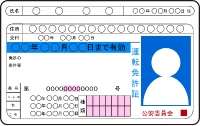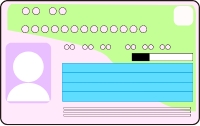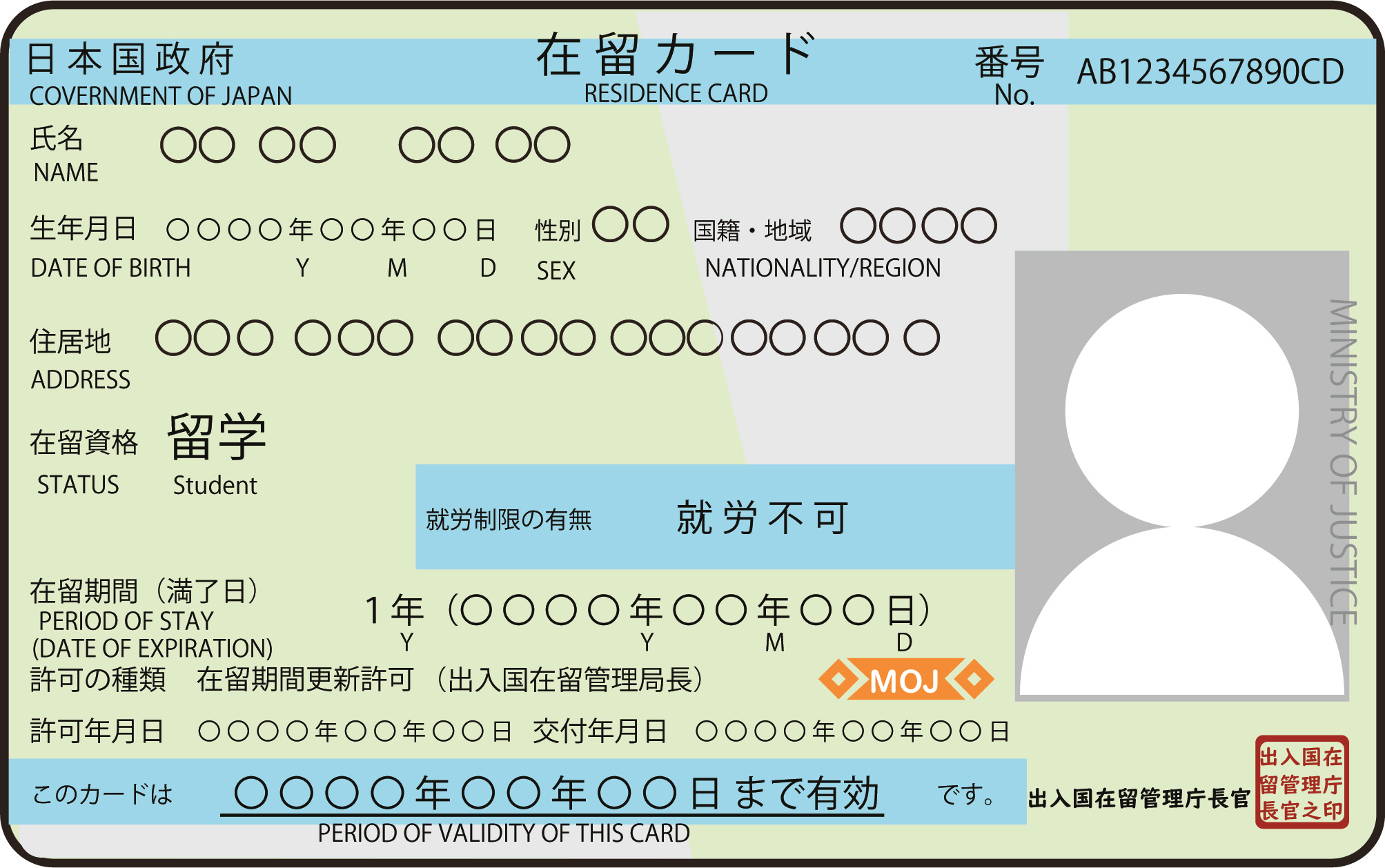03-5275-7610Mon-Fri 9:00~17:00
Preliminary applications for over 2,000,000yen(You can register up to one month in advance)
According to the Act on Prevention of Transfer of Criminal Proceeds, etc., when a financial institution accepts a specified transaction, it is required to confirm the customer's identity and record and maintain the purpose of the transaction. Thank you for your cooperation.
Required identity verification documents
Please bring your identification documents when you are visiting the shop.
If you have a residence card, please bring it with you.
e.g. Typical documents

Japanese driver's license
or Driving record certificate(Issued no earlier than April 1,2012)

Passport
(Japan residents: Issued earlier than February 3, 2020)

My number card with photo

Residence card
Click here for details on identity verification documents.
Transactions that cannot be accepted by WORLD CURRENCY SHOP
Our response to Foreign Currency Exchange Transactions in light of the economic sanctions against Russia.
However, due to Russia's recent invasion of Ukraine, the United States and Europe have imposed a series of strong economic sanctions against Russia and Belarus, and Japan has also been imposing and strengthening economic sanctions against Russia and Belarus since February 26, 2022.
In light of this situation, we are unable to handle transactions that fall under the following "Transactions we are unable to handle".
Customers conducting foreign currency exchange transactions (including the purchase of traveler's checks) are requested to make sure that the transaction does not fall under any of these categories before making a request.
Transactions we are unable to handle in light of economic sanctions against Russia (as of February 2023).
Transactions (all currencies) that fall under either 1 or 2 below.
- Transactions that fall under the ban on export of means of payment to Russia (notified by the Ministry of Finance on March 29, 2022)
- Transactions to be used as payment for trade with Russia, etc.
(Currency exchange transactions for payment of import transactions from Russia, foreign currency exchange transactions received as payment for export transactions to Russia, Currency exchange transactions for purchase of goods to be exported to Russia, etc.)
Our Policy on Foreign Currency Exchange Transactions in Light of U.S. OFAC Regulations, etc.
The Office of Foreign Assets Control (OFAC) of the U.S. Department of the Treasury imposes measures such as trade bans and asset freezes on countries and regions designated by the United States and certain individuals and organizations for foreign policy and national security purposes, and such regulations are called OFAC regulations.
OFAC regulations apply to U.S. persons and U.S. corporations, including U.S. financial institutions, as well as foreign persons and foreign corporations located in the U.S. Mainly, transactions with a U.S. contact point, such as those denominated in U.S. dollars that are settled in the U.S., are subject to OFAC regulations. Even for foreign currency exchange transactions accepted in Japan, transactions in U.S. dollars involving "sanctioned persons" are subject to OFAC regulations, and in such cases, not only the transaction in question but also subsequent transactions may be hindered, such as being restricted by foreign banks.
Under some sanctions programs, such as Iran sanctions, Foreign Financial Institutions (including banks located in Japan), non-U.S. companies (Japanese companies, etc.), and individuals who have no contact with the U.S. may be prohibited from accessing the U.S. foreign currency exchange market, importing goods (into the U.S.), and trading property in the U.S. as part of secondary sanctions. As part of secondary sanctions, you may be prohibited from accessing the U.S. foreign exchange market, restricted from importing goods (into the U.S.), or prohibited from trading in goods (property) in the U.S., and may be designated as a "sanctioned person". In order to protect not only our company but also our customers from the risk of such sanctions, we may conduct a thorough investigation not only at the time the transaction is handled, but also after the fact, and investigate related parties (subsidiaries, affiliates, etc.) over which our customers have capital or control.
It is our policy not to handle transactions, in principle or in any currency, involving or related to countries subject to comprehensive sanctions (Iran, North Korea, Cuba, Syria, Crimea, Donetsk People's Republic (self-proclaimed), Luhansk People's Republic (self-proclaimed)), whether directly or indirectly.
We will comply with the laws and spirit of the applicable local economic sanctions laws in all regions in which we operate. We prohibit any attempt to circumvent or evade sanctions. Customers conducting foreign currency exchange transactions (including the purchase of traveler's checks) are requested to make sure that their transactions do not fall under any of these categories before making a request.
Transactions that we cannot accept based on economic sanctions regulations including OFAC regulations.(*1) (as of June 2023)
Transactions ﴾all currencies﴿ that fall under any of the following 1 through 4.
- Transactions in which the location, countries concerned, places concerned, etc. of the party to the transaction(*2) include North Korea, Iran, Cuba, Syria, Crimea region, Donetsk People's Republic (self-proclaimed), Luhansk People's Republic (self-proclaimed).
- Transactions involving the governments of countries subject to comprehensive sanctions (North Korea, Iran, Cuba, Syria, Venezuela) or their officials or employees.
- Transactions with individuals or companies that fall under any of the following.
Individuals who reside or are physically located in a Comprehensive Sanctioned Country or Territory.
Companies with an address or headquarters in a Comprehensive Sanctions-imposed country or territory. - Transactions involving sanctioned parties(*3)such as terrorists, the Taliban,drug traffickers, traffickers of weapons of mass destruction, transnational criminal organizations
(*1)Economic sanctions regulations include those under the jurisdiction of the Japanese Ministry of Finance, the United Nations, the United Kingdom government, and the European Union government authorities.
(*2)Parties to a transaction include the customer conducting the exchange transaction, the recipient of the exchanged funds, the importer, exporter, consignee, banks, shipping companies, airlines, carriers, aircraft, unloaders/loaders, terminal and pier owners/operators (operating companies), etc. involved in the transaction. The relevant place of destination, place of origin, place of loading, place of unloading, place of destination, ship's registry, etc.
(*3)Sanctioned persons include the governments of North Korea, Iran, Syria, Cuba, Crimea, Donetsk People's Republic (self-proclaimed), Luhansk People's Republic (self-proclaimed), Venezuela, and Russia, as well as individuals, corporations, organizations, ships, and persons owned or controlled by them that are subject to sanctions, assets freeze, prohibited transactions, etc. or controlled by such persons, corporations, organizations, vessels, or entities.
If, after receiving the transaction, there is a possibility that the transaction may fall under economic sanctions regulations (including OFAC), we will confirm the details of the transaction and, depending on the results, we may request that the transaction be cancelled or that further transactions be rejected, depending on the results of the review.
In the event of assets freeze due to OFAC regulations, we will not be able to return funds deposited as payment in lieu of a transaction. In such cases, please be advised that you will be required to take appropriate action, such as applying to OFAC for the unfreezing of your funds. The above is only an example. Please refer to the OFAC website for details on OFAC regulations.
http://www.treasury.gov/resource-center/sanctions/Pages/default.aspx
Regulations on Payment, etc. under the Foreign Exchange and Foreign Trade Law.
In order to ensure the implementation of economic sanctions under the "Foreign Exchange and Foreign Trade Law" (hereinafter referred to as the "Foreign Exchange Law"), we have confirmed that your currency exchange transactions do not fall under or relate to "restrictions on trade-related payments," "restrictions on the use of funds," "restrictions on outward direct investment," or "restrictions on service transactions," etc., in light of the intent of Article 17 of the Foreign Exchange Law. We have confirmed that the customer's exchange transactions do not fall under or are not related to "restrictions on trade-related payments," "restrictions on the use of funds," "restrictions on foreign direct investment," or "restrictions on service transactions. We appreciate your understanding and cooperation.
Please declare the purpose of exchange.
1. Please declare the purpose of exchange, and if the purpose is for imports or intermediary trade, please also declare the commodity item, place of origin (name of country), shipping area (name of city), and destination (name of country) (in the case of intermediary trade).
2. Please confirm that the transaction does not fall under the category of "transactions regulated by North Korea or Iran" under the Foreign Exchange and Foreign Trade Control Law, nor does it fall under the category of the latest Russia-related regulated transactions, and please declare such to that effect.
Please confirm the counterparty to the transaction.
To the best of your knowledge, please confirm that the ultimate recipient of the exchanged funds is not a North Korean resident, and that none of the main shareholders or directors of the counterparty to the transaction is a North Korean resident (corporate or individual), and declare that the transaction is not a "North Korea/Iran Regulation-related transaction.
We may ask you to present documents that can confirm the details of your transaction.
When accepting a transaction at the counter, you may be asked to present materials related to the transaction to confirm the details of the transaction by documents. Please note that we may have to decline your transaction if we cannot confirm that the transaction does not fall under the "Restrictions on Trade-related Payments," "Restrictions on Use of Funds," "Prohibition of Payments to Residents of North Korea," "Restrictions on Foreign Direct Investment," or "Restrictions on Service Transactions”.
We ask for your understanding in advance.
Please confirm the latest regulations regarding Russia-related regulations in the Ministry of Finance Notification or on the Ministry of Finance website.
Following Russia's invasion of Ukraine in February 2022, various regulations based on the Foreign Exchange and Foreign Trade Law are in effect from time to time.
Ministry of Finance | Economic Sanctions and Permit Procedures (Japanese only)
Regulations on Payment, etc. under the Foreign Exchange and Foreign Trade Law (Excerpt)
- North Korea's "Regulations on Trade in Payments"
All goods with North Korea as the origin or shipping area for import or intermediary trade (implemented on October 14, 2006)
All goods with North Korea as the destination for intermediary trade (implemented on June 18, 2009) - North Korea's "Restrictions on the Use of Funds"
Activities that are conducted for the purpose of contributing to "activities that could contribute to North Korea's nuclear weapons-related programs, etc." (Implemented on July 7, 2009). - In Principle Prohibition of Payments" to North Korea
Prohibition in principle on payments to persons having domicile, etc. in North Korea, except for humanitarian purposes and in cases of 100,000 yen or less (implemented on February 26, 2016). - Iran's "Restrictions on the Use of Funds"
Activities that are conducted for the purpose of contributing to "activities related to Iran's nuclear activities, etc." (Implemented on January 22, 2016). - Regulations on Outward Direct Investment for Russia
New outward direct investment in Russia (implemented on May 12, 2022)
Payment of funds for business activities conducted in Russia and payment of funds for business activities conducted outside Russia in which Russian companies, etc. are involved (implemented on May 12, 2022) - Regulations on Service Transactions" for Russia and Belarus
Prohibition of service transactions (provision of technology, etc.) related to the regulated items to Russia and Belarus (to be implemented sequentially from March 8, 2022) - Regulations on Capital Transactions Related to the Price Ceiling for Russian Crude Oil
Prohibition of transactions related to the incurrence of claims based on loan or guarantee contracts in connection with the purchase of crude oil originating in Russia and transported by sea in excess of the price ceiling (Crude oil: December 5, 2022;
Petroleum products: Effective February 6, 2023 ).
(Reference)
Regulations on Payments Based on the Foreign Exchange and Foreign Trade Act of Japan | MUFG Bank
(As of February 2023)
Preliminary applications
- Individual Customers
Self-Employed Customers
(Customers who are not registered as a corporation) - Corporate Customers
Customers of voluntary organizations
Preliminary application does not guarantee a transaction.